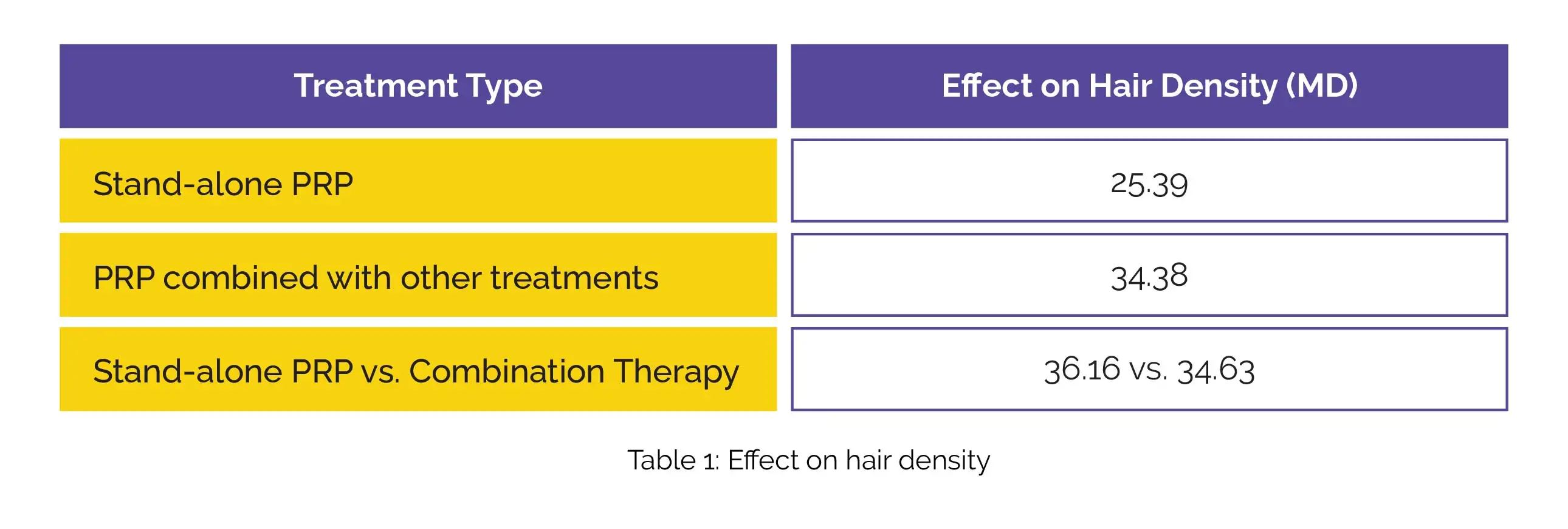Categories
Change Password!
Reset Password!


A systematic review and meta-analysis aimed to compare the betterment in hair density, when platelet-rich plasma therapy (PRP) was utilized as an adjunct and when used as a monotherapy.
In patients with androgenic alopecia, PRP when used alone or in combination with other treatments is associated with a considerable rise in hair density.
A systematic review and meta-analysis aimed to compare the betterment in hair density, when platelet-rich plasma therapy (PRP) was utilized as an adjunct and when used as a monotherapy.
Following systematic review and meta-analysis recommendations, a meta-analysis was carried out on relevant articles from multiple databases. The analysis included randomized clinical trials that assessed the use of PRP either independently or as an adjunct to previously employed treatments. Data on hair density at the outset of treatment and subsequent follow-ups at 3 and 6 months were utilized for the analysis.
Out of a pool of 255 articles, 9 studies were selected, comprising a total of 230 volunteers in the dataset. In contrast to the placebo, using PRP therapy alone led to a notable rise in hair density. Additionally, PRP combined with other treatments also demonstrated a substantial enhancement in hair density in comparison with the placebo. When comparing the effectiveness of stand-alone PRP to combination therapy, mean difference (MD) values observed for the respective groups are depicted in Table 1:

PRP showed favorable effectiveness in enhancing hair density in cases of androgenetic alopecia. Nevertheless, the outcomes do not provide sufficient justification for the adoption of PRP-combined therapy. It is advisable to include stand-alone PRP therapy in the treatment protocols for both men and women.
However, further investigations and possibly the exploration of alternative combination therapies are necessary before considering combined therapy as a part of androgenetic alopecia management guidelines.
Annals of Medicine & Surgery
Novel vs. modified platelet-rich plasma therapy for hair loss treatment: a systematic review and meta-analysis
Kanee Fatima et al.
Comments (0)